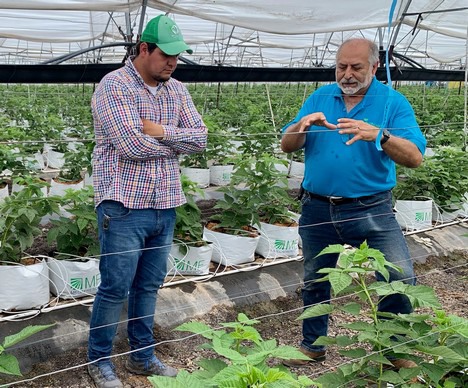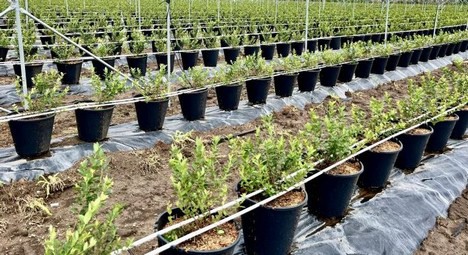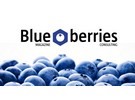The varieties of blueberries and vegetables increasingly demand more technology that allows them to exploit these crops to the maximum power.
The environment where these plants will live = substrates is a key piece for the development of the crop. Coconut fiber has proven to be an ideal organic medium to produce high-value crops that allow growers to manipulate their management, according to their needs, just like an artist when he is going to paint a work of art and needs a blank canvas.
But, although the virtues and benefits of the coconut substrate alone are numerous, and producers can take measures and establish practices that allow us to get the most out of the substrate and be able to understand it more completely.

This is what Blueberries Consulting will address in their next free webinar, in which, jointly, Raúl Mercado and Frank Chávez, co-founders of Agroheroes, will share a talk on the coconut fiber substrate from the perspective of a producer:
- Reception of materials
- Individualization of the material for placement in pots or bags.
- Proper Moisturizing (Hydration) and How to Boost It
- Best practices for homogeneity in the application of the substrate.
- The importance of the retention curve in the substrate
- readily available water
- Myths and realities of coconut fiber
The appointment is Thursday, October 20, at 17:00 p.m. (GMT-5).
Raúl Mercado is a researcher and producer in the north of Mexico, in the state of Sinaloa, being the third generation of farmers in his family. He is a co-founder of DIDIHU and Agroheroes.

Frank Chávez is a pioneer and promoter in the production of coconut substrate in Mexico. For almost 30 years, he has been dedicated to fiber research, having multiple plants in the Mexican Republic. He is a co-founder of Patromex and Agroheroes.
Agroheroes: a new force in substrates
After several years of working as a team, Patromex and DIDIHU decided to go one step further. To strengthen their alliance, they created a new company called: AGROHEROES, which will transform Mexican coconut fiber with technology into value-added substrates with the best quality for the world of professional producers.
"Since I met Frank, I have seen him as my mentor. The passion that he has for the product, the great experience, but above all, the fact that we share the same values, has made it possible for us to understand each other perfectly. He is transparent, professional, and generous. He has an impressive work ethic, and he doesn't stop working all day even though he is 70 years old, he still has more energy than a 25-year-old", Raúl highlights.

The trust and respect that exists between the two parties is palpable. "Raúl and I have the same vision, the same ideals. He is a very honest and valuable person, and we have a lot in common; not only do we complement each other as people, but also with our respective companies: Patromex has a lot of experience in the production part, while DIDIHU has a lot of strength in its commercial and marketing arm. We make a great team", says Frank.
Meeting new producers, learning from them, and helping them achieve success, as well as knowing that they are contributing their grain of sand to making the world more sustainable, is what motivates both Frank and Raúl to formalize this partnership and face all challenges that may arise together.
For more information:
Blueberries consulting
[email protected] [email protected]
